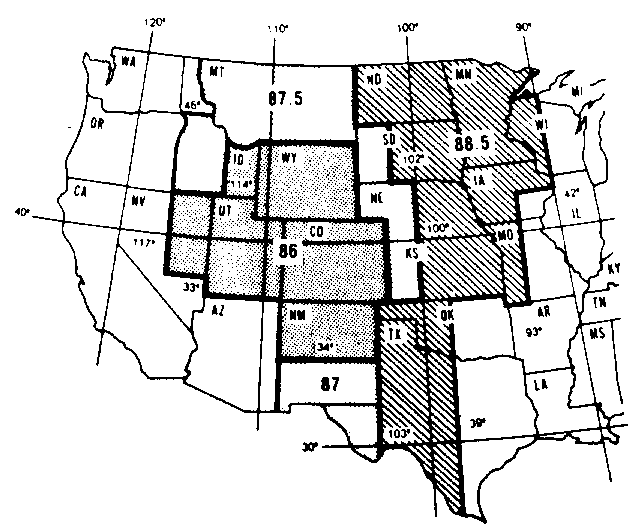LEAD CONTENT PHASEDOWN EPA REGULATION

Model and Year: ALL MODELS WITH HEAVY DUTY EMISSION GAS ENGINES
TO: ALL CHEVROLET DEALERS
Requests have been received from dealers for information concerning the new EPA regulation on leaded gasoline phasedown.
Starting on January 1, 1986, the new EPA regulation reduces the lead content in gasoline to a maximum level of .1 gram/gallon of gasoline. The new EPA regulations do NOT prohibit the manufacture or sale of leaded gasoline.
We expect that trucks equipped with GM engines designed to operate on leaded fuel will be unaffected by the new lower levels of lead when the engines are carefully maintained in accordance with published recommendations and the vehicles operated within GVW-GCW ratings.
In the United States, Federal law requires that gasoline octane ratings be posted on the pumps.
The octane rating shown is an average of Research (R) octane and Motor (M) octane ratings. In most parts of the United States, regular grade leaded gasoline with a rating of at least 89 octane should be used. However, in the high altitude areas, as shown on the following map, gasoline with lower minimum octane rating may be used.
Using leaded gasoline with too low an octane rating can cause persistent, heavy "spark knock". "Spark knock" is a metallic type rapping noise. If severe, this can lead to engine damage.
An occasional light spark knock while accelerating on driving up hills is normal. If any heavy spark knock is detected or if steady spark knock is heard while holding a steady speed on level roads, the engine should be adjusted to correct this condition. Failure to take steps to correct excessive spark knock constitutes misuse of the vehicle, and General Motors is not responsible for damage due to misuse.
Particular attention should be paid to the maintenance of the engine cooling system. Subjecting the engine to periods of overheat is more likely to cause engine damage when operating on fuel with lower lead levels. This is because as lead levels decrease, the lubrication provided to the valve areas by leaded gasoline is decreased. This reduces the period of time the valves can reliably operate if subjected to an engine overhead condition.
Proper octane ratings are critical, as persistent spark knock can contribute to engine overheat as well. Use only the required octane rated gasoline as previously stated.
If heavy spark knock is encountered:
1. Retard engine timing up to four degrees to reduce spark knock to an acceptable level. As timing is retarded, engine power and fuel economy may be affected.
2. For preignition induced by knock, change to one heat range colder spark plugs. For example replace R45T spark plugs with R44T spark plugs. However, do not use a spark plug that has a heat range lower than an R43.

General Motors bulletins are intended for use by professional technicians, not a "do-it-yourselfer". They are written to inform those technicians of conditions that may occur on some vehicles, or to provide information that could assist in the proper service of a vehicle. Properly trained technicians have the equipment, tools, safety instructions and know-how to do a job properly and safely. If a condition is described, do not assume that the bulletin applies to your vehicle, or that your vehicle will have that condition. See a General Motors dealer servicing your brand of General Motors vehicle for information on whether your vehicle may benefit from the information.
